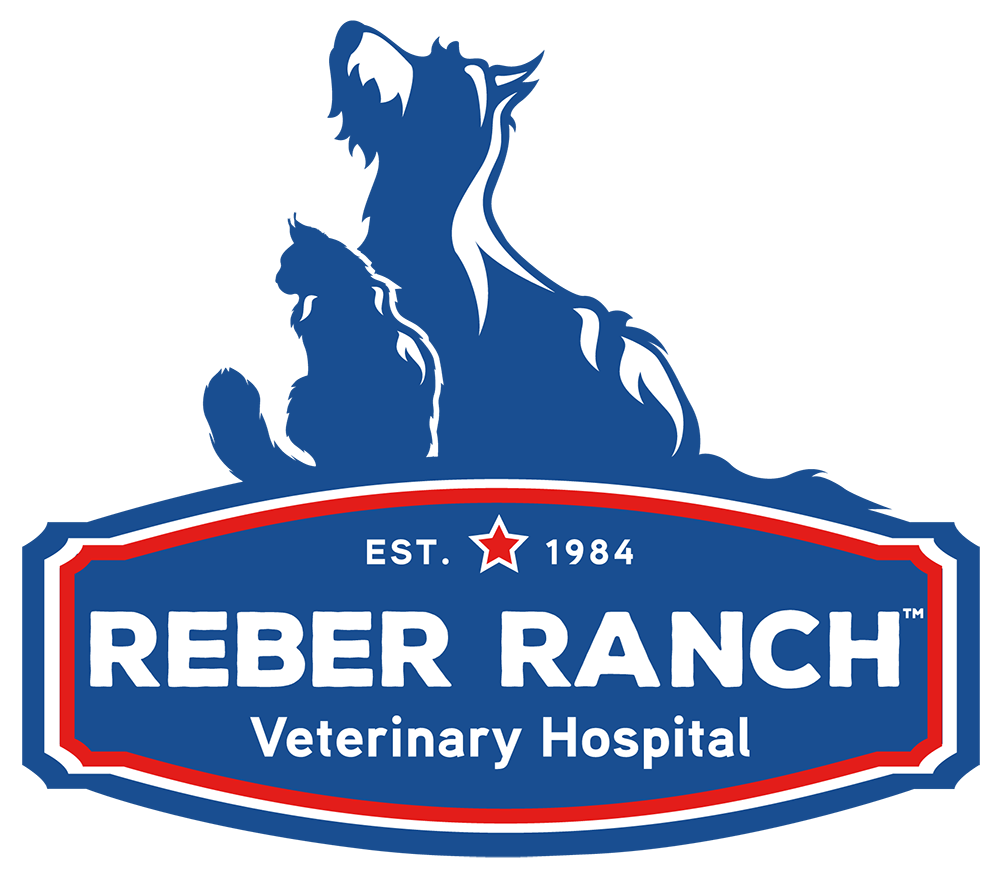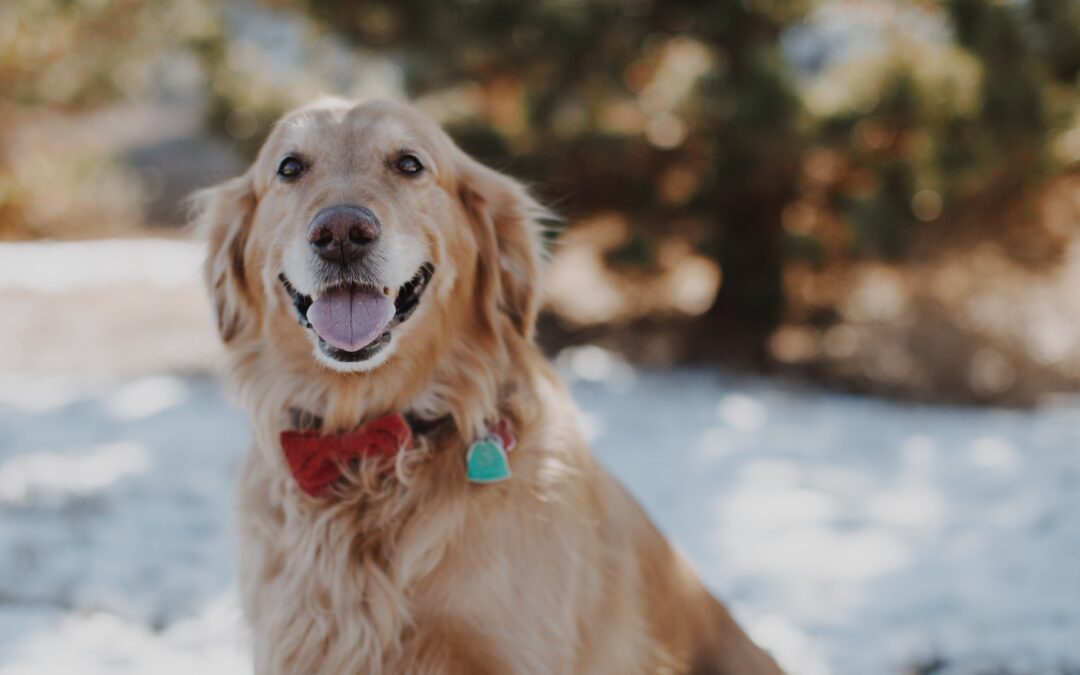Senior Pets by Dr. Krista Hight, DVM
This month is National Senior Pet Month, and we are focusing on our senior companions! We all know that pets age faster than humans. We sure wish they could live forever, but the average lifespan for a dog is 10-13 years and for a cat, it is 12-18 years (usually less for outdoor cats). That means at age 7 cats and dogs are considered to be geriatric. That does not mean they get to retire to Florida and start ordering off the back of the menu. What this really means is that your senior pet can develop many conditions and problems that we see in senior and geriatric people: cancer, diabetes, kidney disease, liver disease, heart disease, mobility issues, and even senility.
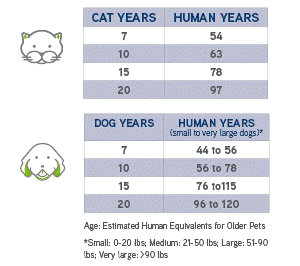 As your pet ages, routine veterinary checkups are very important to catch problems early and increase the longevity and quality of life in your senior dog or cat. At these checkups, senior bloodwork may be mentioned or offered, which can screen for many of the diseases listed above. Also, routine checkups allow your veterinarian to monitor your pet’s weight. Weight gain is a common problem in senior pets (we all know firsthand how metabolism sure slows down with age) and can lead to additional issues, such as diabetes in cats and joint problems in dogs. Sudden unintentional weight loss is a huge red flag for cancer, kidney disease, liver disease, heart disease, and hyperthyroidism can all cause sudden unexplained weight loss. A good physical exam (to listen for heart murmurs and arrhythmias, palpate for enlarged lymph nodes or abdominal masses), as well as senior bloodwork, can help rule out many of these issues.
As your pet ages, routine veterinary checkups are very important to catch problems early and increase the longevity and quality of life in your senior dog or cat. At these checkups, senior bloodwork may be mentioned or offered, which can screen for many of the diseases listed above. Also, routine checkups allow your veterinarian to monitor your pet’s weight. Weight gain is a common problem in senior pets (we all know firsthand how metabolism sure slows down with age) and can lead to additional issues, such as diabetes in cats and joint problems in dogs. Sudden unintentional weight loss is a huge red flag for cancer, kidney disease, liver disease, heart disease, and hyperthyroidism can all cause sudden unexplained weight loss. A good physical exam (to listen for heart murmurs and arrhythmias, palpate for enlarged lymph nodes or abdominal masses), as well as senior bloodwork, can help rule out many of these issues.
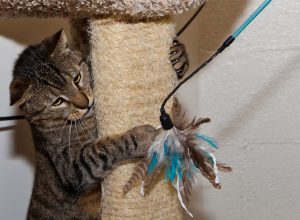 As pets age and become less active, we like to think of them as slowing down or not as active in their old age. But, the fact of the matter is that there could be something wrong, such as heart disease or chronic arthritis. Both problems can be easily improved with medications that can extend the quality of life for our furry family members. It’s important that senior pets continue to exercise, although this may look a little different than when they were pups. Walking and gentle swimming are great exercises for senior pets to help keep the weight off and the joints loose.
As pets age and become less active, we like to think of them as slowing down or not as active in their old age. But, the fact of the matter is that there could be something wrong, such as heart disease or chronic arthritis. Both problems can be easily improved with medications that can extend the quality of life for our furry family members. It’s important that senior pets continue to exercise, although this may look a little different than when they were pups. Walking and gentle swimming are great exercises for senior pets to help keep the weight off and the joints loose.
Switching to a senior diet also has many advantages. The pet food industry is doing some really cool things with nutrition. Medium-chain fatty acids are used to help slow the signs of dementia/senility. Omega three fatty acids keep coats shiny and joints healthy. Glucosamine and chondroitin are helping our dogs and cats be more mobile. Pet food specifically formulated for seniors has many vitamins and supplements added to keep our old dogs and cats looking and feeling younger.
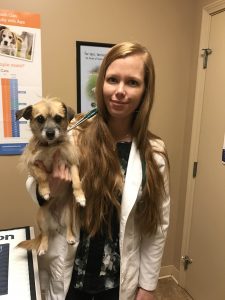 Finally, don’t avoid dental care in your senior pet. While it can be scary to put your dog or cat under anesthesia for dental procedures, dental care (especially for mouths that are infected and need extractions) can help to improve your pet’s life. Many people assume that because their animals aren’t outright complaining and are still eating, their mouths are fine. However, I have personally had several clients tell me that their dog or cat starts acting like a puppy or kitten again after their dental procedure and that they must’ve been in pain for a long time without anyone realizing it. Dental health is so important for overall health and pain-free living. Here at Reber Ranch, we take special care of all of our patients, and anesthesia is monitored very closely for the length of their procedure. We treat all of our patients like they were our own family members, and we hope for long, happy lives for all of the dogs and cats that we see.
Finally, don’t avoid dental care in your senior pet. While it can be scary to put your dog or cat under anesthesia for dental procedures, dental care (especially for mouths that are infected and need extractions) can help to improve your pet’s life. Many people assume that because their animals aren’t outright complaining and are still eating, their mouths are fine. However, I have personally had several clients tell me that their dog or cat starts acting like a puppy or kitten again after their dental procedure and that they must’ve been in pain for a long time without anyone realizing it. Dental health is so important for overall health and pain-free living. Here at Reber Ranch, we take special care of all of our patients, and anesthesia is monitored very closely for the length of their procedure. We treat all of our patients like they were our own family members, and we hope for long, happy lives for all of the dogs and cats that we see.
Check out this blog on Old Dog Haven’s site by Dr. James St.Clair, author of Dogs Don’t Cry, on how to look and listen for signs of pain in dogs.
